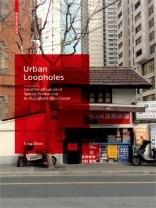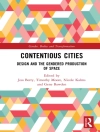Urban reuse, creative production, consumerism, and heritage protection have formed an alliance for the transformation of inner-city districts of Shanghai.
This in-depth study, based on the author’s intimate familiarity of the local scene and supplemented by her critical outsider’s insights, describes the strategies, players, and processes of a uniquely Chinese model of urban transformation. Concepts like ‘Urban Loopholes’, ‘Preservation via inhabitation’, and ‘Gentrification with Chinese characteristics’ characterize the specific mechanisms for urban development in Shanghai. Urban Loopholes invites the reader to rethink the necessity of urban resilience in the face of globalization’s impact for change.
เกี่ยวกับผู้แต่ง
Ying Zhou, geb. in Shanghai, Studium an Harvard, Princeton und ETH Zürich, Professorin an der University of Hong Kong












